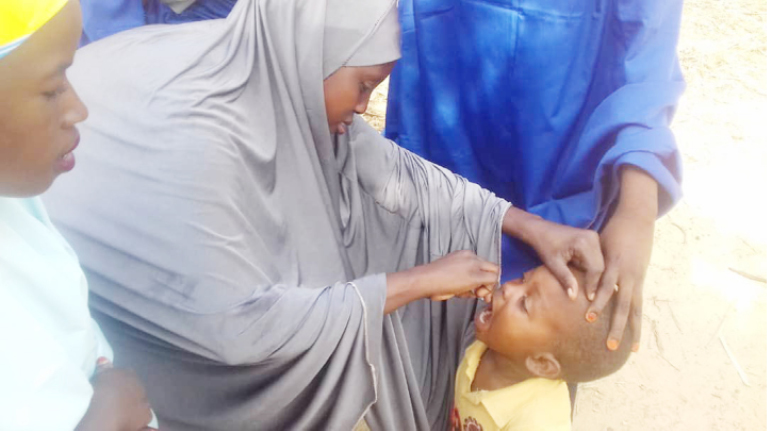Nigeria’s battle to end polio is almost done, but not quite
Nigeria is around six months to being declared polio-free after no record of infection for three years, but the country now has to concentrate on keeping the virus out of circulation. A regional certification team of the World Health Organisation is expected to visit and assess the documentation of immunisation schedules of Nigeria in coming […]

Nigeria is around six months to being declared polio-free after no record of infection for three years, but the country now has to concentrate on keeping the virus out of circulation.
A regional certification team of the World Health Organisation is expected to visit and assess the documentation of immunisation schedules of Nigeria in coming months, leading up to declaring the country polio-free.
On Tuesday, a committee of experts reviewing Nigeria’s progress on routine immunisation and polio eradication, met in Abuja to review the country’s long battle against polio.
It is the committee’s 37th meeting—and nearly all of the recommendations it posted last year were met.
They range from surveillance for acute flaccid paralysis (an indicator of polio) and vaccine management to financing for polio eradication initiative and advocacy and communication.
“The last six months signalling certification progress may actually be the most difficult,” said Faisal Shuaib, executive director of the National Primary Health Care Development Agency, responsible for routine immunisation and coordinating primary health care nationwide.
In the wake of the committee’s recommendations, vaccinators worked with the military in Borno to reach more children in areas previously inaccessible in the wake of the Boko Haram insurgency.
The number of children unreached fell from 70,000 to an estimated 35,000.
At least 7,100 children were vaccinated at nine international borders and four international markets along the borders between Yobe in Nigeria and Niger Republic in March and April this year, following close collaboration between Niger, Nigeria and Cameroon.
And during a setback in 2016, when an outbreak was reported in areas previously under Boko Haram control until they were liberated by the military, the federal government released N9.8 billion to ramp up efforts to find cases of wild polio virus.
After a drop to N1.2 billion last year, funding for polio eradication initiative rose to N4.8 billion in 2020 budget, the same level in 2017.
And since then, intensified routine immunisation is reaching more children previously missing out on vaccination.
“While we acknowledge the progress we have made, we are also conscious of the fact that unless and until no child in Nigeria is paralysed from polio, we have not done the work. this is why we are not relenting on our efforts,” said Shuaib.
A rising concern for continued and sustained vaccination is circulating vaccine-derived polio virus (cVDPV).
Oral polio vaccine administered to children contains a weakened vaccine-virus meant to activate an immune response in the body.
The weakened vaccine-virus replicates in the intestine for a limited period and develops immunity by building antibodies against the polio virus
It is also excreted in faeces and in areas of inadequate sanitation, the excreted vaccine-virus can spread in the immediate community, offering protection to other children in what is called “passive immunisation” before dying out.
In under-immunised communities, the vaccine-virus can spread can circulate. The longer it is allowed to survive, the more it undergoes genetic changes, turning into a form that can cause paralysis.
“What we are finding with some of the cVDPV has come from so many decades of neglect. The cVDPV are a result of several decades of poor routine immunisation,” said Shuaib.
“Surveys have consistently shown our routine immunisation coverage has never been as good as claimed.”
A National Immunisation Coverage in 2016 showed only 25% of children were fully immunised.
Since then intensified immunisation has lifted coverage to 50%.
“We want to achieve 80% and beyond. We recognise routine immunisation needs to improve,” said Shuaib.
“Unless and until we get everybody bringing their kids to the health facility to vaccinate them, then the virus tends to look for those kids that have not been protected by vaccines and that can cause paralysis.”
Some 21 of 23 recommendations put forth by the expert review committee last year have been achieved, but the next six months to Nigeria being certified polio free are crucial.
“They achieved, that’s why we are here,” said Olawale Tomori, chairman of the expert review committee.
“It doesn’t mean everything is over. So long as we keep having children in this country, we must keep vaccinating them. Pakistan and Afghanistan still have polio, so we must keep protecting our children. You never know where the next disease is going to come from. The experience of measles [long eradicated in the US but re-emerging] in the US should tell us our work is finished.”
